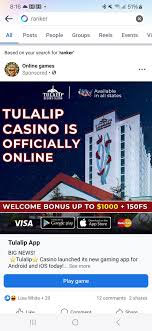Consumer Protection
Important Information for Our Players
Washington's Lottery is committed to the responsible sale and play of its games. Unfortunately, as technology, and the Internet in particular, has advanced, so has the complexity of Lottery scams and fraud. Washington's Lottery is frequently alerted to fraudulent Web sites, emails and other tools used to rob consumers of their money and peace of mind. Many of these scams are clever and well-executed, but they do not represent Washington's Lottery or licensed Lottery retailers.
Washington's Lottery is not affiliated with any Web site or online retailer proposing the sale or purchase of lottery tickets on customers' behalf. Washington's Lottery products are available ONLY from Lottery locations or licensed lottery retailers. Therefore, Washington's Lottery cautions players against attempting to purchase tickets through other venues.
Illegal Gambling Activities
Gambling in Washington State is illegal unless the activity is specifically authorized by state law. Gambling involves three elements: prize, chance, and consideration (money or anything of value).
Forms of illegal gambling include:
- Sports Wagering: Betting on the outcome of sporting events is illegal in Washington State except at tribal casinos.
- Internet Gambling: All forms of internet gambling are illegal in Washington. The only exception is sports wagering while physically present at a tribal casino facility. Despite this, may entities use social media to offer internet or online gambling in Washington. These entities are unlicensed and unregulated even though they may claim to be affiliated with a real tribal casino. An example of one such illegal online casino is this:

- Animal Fighting: State law prohibits anyone from training animals to fight, fighting animals, or being present at fights, whether or not gambling is taking place.
What to Do if you Encounter Illegal Gambling
You can report illegal gambling to the Washington State Gambling Commission.
The Washington Attorney General’s Office has a Consumer Protection Division composed of attorneys and professional staff. The division enforces the Consumer Protection Act (RCW 19.86) and other statutes to help keep the Washington marketplace free of unfair and deceptive practices. The division investigates and files legal actions to stop unfair and deceptive practices, recovers refunds for consumers, seeks penalties against offending entities, and recovers costs and fees to ensure that wrongdoers pay for their actions. To learn more, go to Consumer Protection | Washington State or call 1-800-551-4636 (Washington only) or 206-464-6684.